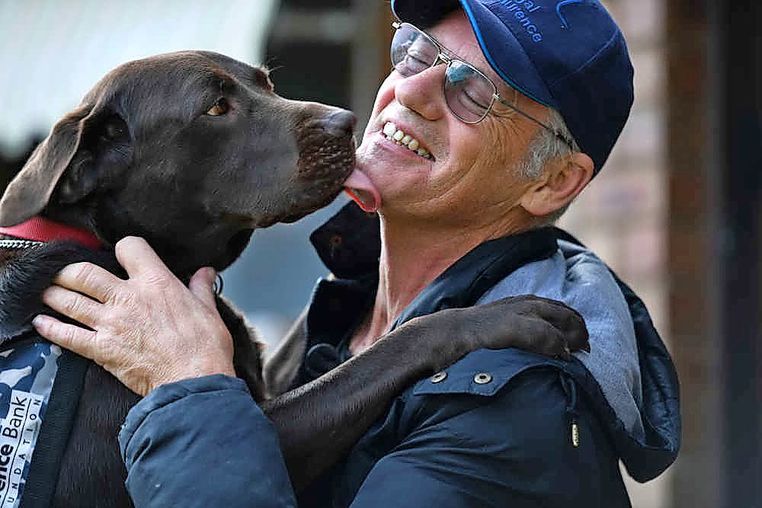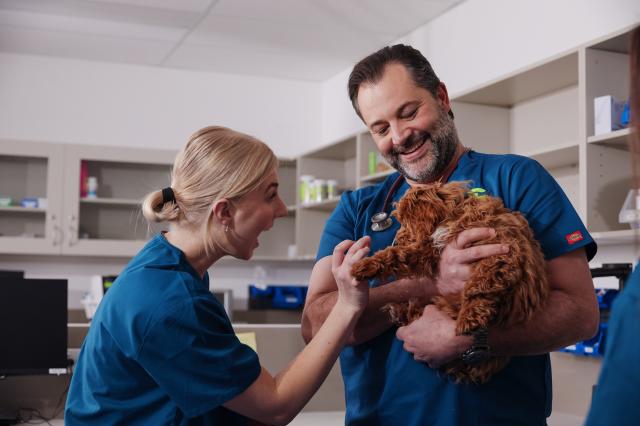A former Werribee police sergeant is taking Victoria Police, WorkSafe and insurance company Gallagher Bassett to court for refusing to fund an assistance dog to treat his post-traumatic stress disorder.
Ron Fenton said his mental health has improved dramatically since taking on pure-bred American hunting Labrador, Yogi, in March last year.
Mr Fenton’s 40-year career with the police force took him from patrolling the streets of St Kilda in the 1970s and working with search and rescue, to returning to active duty in Werribee in 1996.
In 1984, he was shot in the head after pursuing a man who had shot and killed a security guard. On another occasion, he was bitten by a man claiming to have HIV.
The stress has taken its toll and in 2016, Mr Fenton spent three weeks in the Austin Hospital’s post-traumatic stress recovery section, with the $16,611 medical bill paid by WorkSafe.
Mr Fenton said having Yogi around had turned his life around.
“I’ve cut my psychology visits down to nil, I’ve cut my psychiatric visits down to virtually nil, my medication has been dramatically reduced,” he said.
“I no longer have any night terrors … my mental stability has been improved enormously.
“I’m asking for $2000 a year to feed him and take him to the vet. One would think that if you’ve got a choice of paying $16,000 for 21 days in hospital, or $2000 per year [you’d pick the cheaper option].”
Last week, Mr Fenton instructed his legal team to begin proceedings against Victoria Police, WorkSafe and Gallagher Bassett for their refusal to accept Yogi as a legitimate medical expense of his workplace-induced PTSD.
A WorkSafe spokeswoman said it could not comment on individual cases for privacy reasons.
“WorkSafe strives to continuously improve its service to help injured workers in their recovery. This includes staying abreast of, and utilising new and emerging treatments which have been clinically proven to be effective,” she said.
A Victoria Police spokeswoman said the organisation used best practice and evidenced-based approaches to deliver welfare services and support to its members.
“While we cannot always prevent a police officer’s exposure to trauma, we are working hard to ensure that our employees are prepared and supported to minimise the impact of such events.
“To this end, we commissioned an independent mental health review in 2016 and have been working hard over the past few years to implement its recommendations and improve the mental health of our workforce.
“This includes working to better engage with retired police officers.”
Gallagher Bassett did not respond to Star Weekly’s request for comment by deadline.







